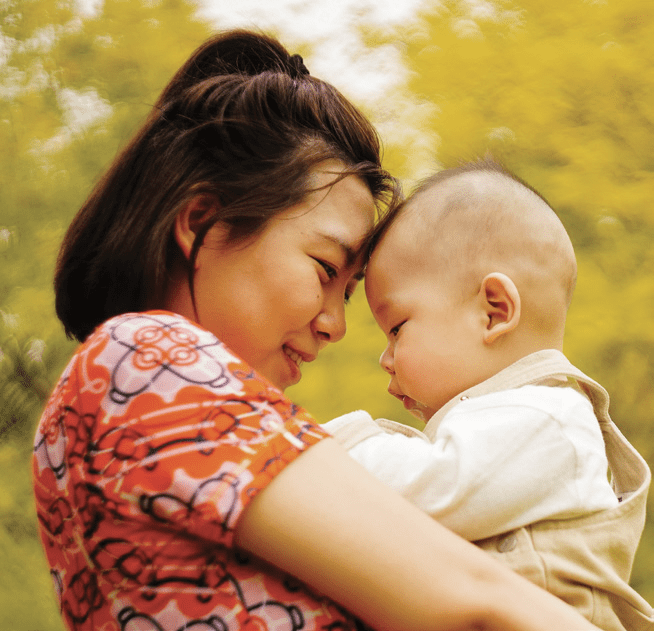
Is it possible to dialogue about a matter that is deeply felt and about which many have firmly held views? Is abortion a black-and-white issue?
Two well-defined positions vie for ascendancy: on one hand, a woman’s right to choose whether to carry a baby to term, based on the premise that the fetus is not a person; on the other hand, the protection of the life of an innocent person, based on the premise that personhood is acquired at conception.
Dialogue on this issue is complicated by the fact that both positions rely on Western philosophical and theological concepts that are largely unfamiliar to the average individual.
In truth, if we reduce dialogue about abortion to an intellectual exercise designed to prove the other party wrong, we soon find ourselves in a quagmire, regardless of which side of the argument we subscribe to.
As an example, let us try and scratch the surface of a subject that might seem straightforward: conception.
Biological science teaches us that, in mammals, fertilization results in the creation of a single-cell embryo called a zygote, which represents the first stage in the development of a genetically unique, complete and distinct organism. Genetically unique, and distinct from both the father and the mother. It is also complete. It contains all the essential factors for development.
In humans, the zygote undergoes mitosis as it travels from the ovary down the fallopian tube to the uterus. The beginning of the process of implantation in the uterus takes place about one week after fertilization. This event is generally considered the start of pregnancy. The process of implantation takes about ten days.
For those who would claim that a human person exists from the moment of fertilization, it is important to note that about one-third to one-half of the embryos do not implant and are simply expelled in the course of a normal menstrual period. Fertilization does not result automatically in implantation or pregnancy.
This fact leads to the following consideration: If we claim that fertilization and conception (in Christianity, the infusion of an immortal soul) are synonyms, and if we accept that conception confers personhood, wouldn’t this imply that, when an embryo does not implant, a human person has been literally flushed down the toilet?
If we find that thought troubling, we might want to reconsider whether fertilization and conception are synonyms at all.
In September 2021, Cardinal Wilton Gregory, Archbishop of Washington (USA), alluded to the fertilization-conception conundrum in a presentation given at the National Press Club. “The Catholic Church teaches and has taught that life – human life – begins at conception,” he said. “Now, among the theologians, there’s all kinds of medical issues about when conception takes place. When? Is it at implantation? Is it at some point when the sperm and the ovum come together and create a new reality? And theologians have debated that and continue to debate that.”
And, likely wanting to avoid misunderstandings, he clarified, “Our Church has not changed its position on the immorality of abortion. And I don’t see how we could because we believe that every human life is sacred. Every human life is sacred.”
On the other side, some have made reference to Thomas Aquinas to justify early-term abortion. The argument is attractive, but it fails to acknowledge that, until relatively recent times, we had a rudimentary understanding of the processes that the embryo and fetus undergo during gestation.
“Quickening,” when the mother first feels the movement of the fetus, as an indication of “ensoulment” (conception) is an idea that goes back to Aristotle and that was considered by Aquinas as a possible indicator of personhood.
However, as T.A. Simonds points out, contrary to what many claim, Aquinas did not write that personhood begins at quickening, but that it must be present at quickening. In other words, conception could have taken place at any earlier stage. Thus, using Aquinas as justification for early-pregnancy abortion lacks validity.
The above is important because Church teaching on abortion was based on the concept of quickening for many centuries. In fact, the Catholic Church adopted its current teaching on abortion only in 1869, when Pope Pius IX enacted the penalty of excommunication1 at any stage of pregnancy.
Previously, the penalty of excommunication was applied only in cases where the abortion was procured after quickening, as prescribed by Pope Gregory XIV in 1591. Gregory XIV’s ruling reversed that of his predecessor, Sixtus V, who, in turn, had reversed the ruling that had been in place since 1211, when Innocent III had declared that excommunication applied only after quickening.
The current teaching of the Catholic Church is summarized in paragraph 60 of John Paul II’s encyclical Evangelium Vitae (Gospel of Life). The second part of the paragraph gets to the point:
“Furthermore, what is at stake is so important that, from the standpoint of moral obligation, the mere probability that a human person is involved would suffice to justify an absolutely clear prohibition of any intervention aimed at killing a human embryo. Precisely for this reason, over and above all scientific debates and those philosophical affirmations to which the Magisterium2 has not expressly committed itself, the Church has always taught and continues to teach that the result of human procreation, from the first moment of its existence, must be guaranteed that unconditional respect which is morally due to the human being in his or her totality and unity as body and spirit.”
It is worth noting that John Paul II does not attempt to address the philosophical and theological questions, or give a definitive answer to the issues at hand. Instead, he writes of moral obligation, mere probability, and unconditional respect from the first moment of its existence.

As the reader can appreciate, there is a confused mess here. And we have barely scratched the surface. Wouldn’t it be more helpful to think of conception as a process rather than an event, as has been suggested by some, as a possible way out of the conundrum?
And looking beyond this issue, what about the argument that the fetus, though alive, is not a person? Or the reference to Exodus 21:22–25 used to argue that the woman is valued as a person in Scripture, but the fetus is valued only as property?
These questions will not be resolved any time soon by philosophical or theological discourse, which is not to be disparaged. What is needed at this moment is a dialogue of the heart.
In 2010, Cardinal Bergoglio, the future Pope Francis, depicted dialogue as follows in his book On Heaven and Earth: “Dialogue is born from an attitude of respect for the other person, from a conviction that the other person has something good to say. It assumes that there is room in the heart for the person’s point of view, opinion, and proposal. Dialogue entails a cordial reception, not a prior condemnation. To dialogue, it is necessary to know how to lower the defenses, open the doors of the house and offer human warmth.”
Ultimately, dialogue is not primarily about intellectual discourse, but about relationship building. The abortion issue is about persons with names and faces, people who often face such tragic conditions that no amount of philosophy or theology matters. What these names and faces long for is the warmth of accompaniment.
We are called to journey with the other even when one thinks that the other is going the wrong way. It is good to remember that Jesus walked with the disciples heading to Emmaus going the wrong way, away from Jerusalem.
And, should unwanted pregnancies occur, we should all be willing to intervene in a constructive way. As Pope Francis asserted in his Apostolic Exhortation Evangelii Gaudium (213, 214):
“Among the vulnerable for whom the Church wishes to care with particular love and concern are unborn children, the most defenseless and innocent among us… Reason alone is sufficient to recognize the inviolable value of every single human life… It is not ‘progressive’ to try to resolve problems by eliminating a human life.
“On the other hand, it is also true that we have done little to adequately accompany women in very difficult situations, where abortion appears as a quick solution to their profound anguish, especially when the life developing within them is the result of rape or a situation of extreme poverty. Who can remain unmoved before such painful situations?”
Perhaps fruitful dialogue on abortion can begin here.
Carlos Freire
(Living City, USA)
1 Form of punishment imposed by the Church by which a person is excluded from the communion of believers, the sacraments, and the rights of church membership
2 The teaching authority of the Church




